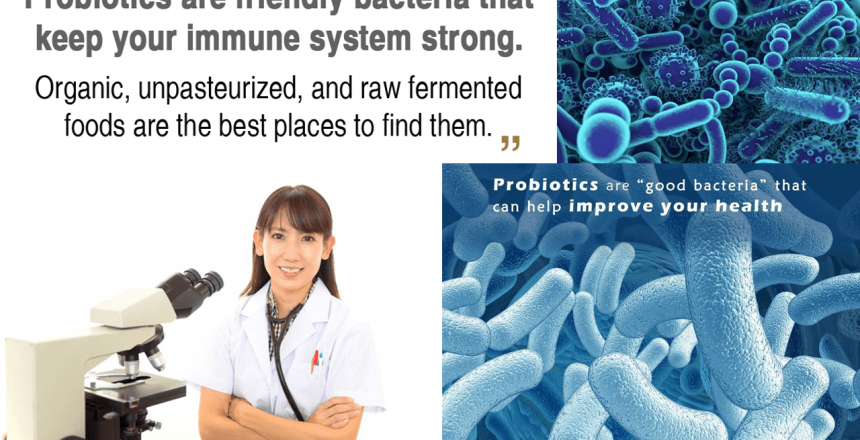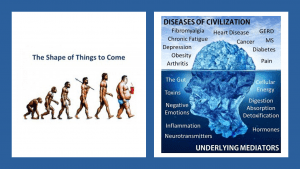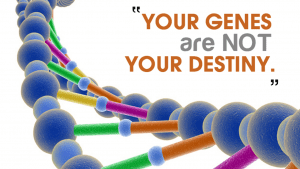Probiotics (the ‘good’ gut bacteria) are essential for full health.
Prebiotics (if you’re confused by the term) are the nutritious fibre-dense foods that are the ‘food’ of the probiotics themselves!
The gut is such a vital part of our health.
It is such a critical area of what we do with Vibrant Life Key #2 where the focus is all about your internal chemistry
Probiotics form part of what is called the ‘microbiome’ or internal ‘flora’ of the gut and in the average man, they are said to weigh as much as 10kg!
Our gut digests and absorbs our nutrition, is a first line of defence in many cases, detoxifies, excretes poisons and produces many vitamins or other substrates needed for life.

Probiotic bacteria are known to stimulate the immune system, and protect us from (by competing with) unhealthy bacteria – they ‘keep our gut clean’!
We tend to have deficiency of proper gut flora mainly because:
- we do not eat nutritious, fibre-dense food (that contain and feed probiotics),
- we take antibiotics too often (which kill off all bacteria and then allow the bad ones to re-colonise easier),
- we drink chlorinated water that kills bacteria,
- we don’t eat enough of the more traditional offal foods or properly fermented foodstuffs or drinks,
- and our lives are too clean – we don’t interact with ‘dirt’ and the natural world like we once did!
Another issue that interferes with our microbiome is that people have been ‘hoodwinked’ into believing that any probiotic is a good thing!
Many of the common commercial probiotics that people supplement with are often sourced from dairy, and there is evidence that they do not adhere to the gut lining like our preferred good bacteria do, and so cannot perform all of the same functions.
Production methods/ingredients to consider with choosing the right supplemental probiotics include:
- Non-dairy
- No lactose
- No wheat
- No gluten
- No soy
- No corn
- No eggs
- No yeast
- No sugar
- No artificial flavours or preservatives.
There are also other ways to work on an improved gut microbiome – eating appropriately fermented foods – kefir, kombucha, kimchi, sauerkraut, some types of pickled foods etc.
Working on reduced sugar intake and reduced acidity, as well as reduced physical or mental-emtional stress levels.













